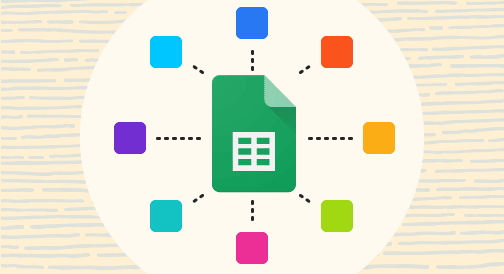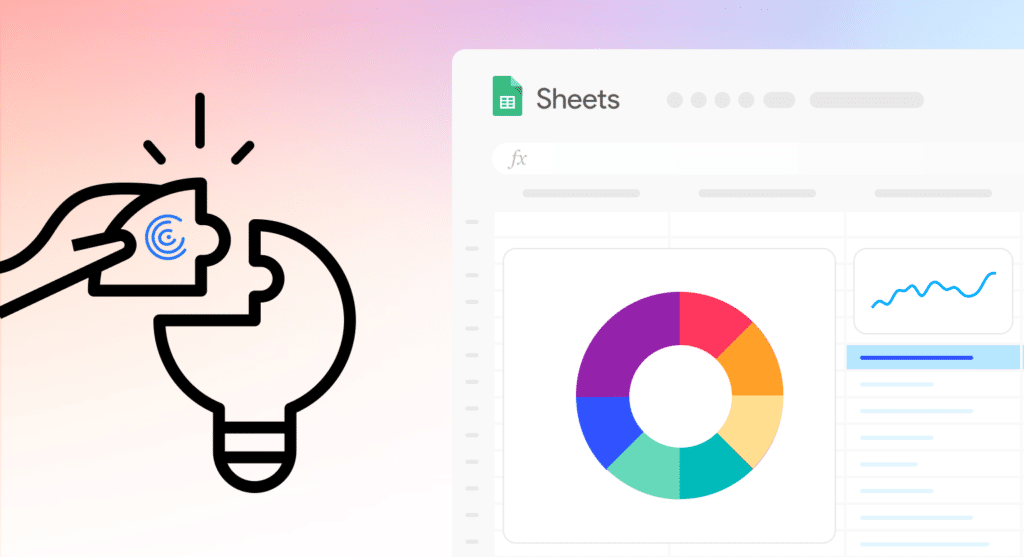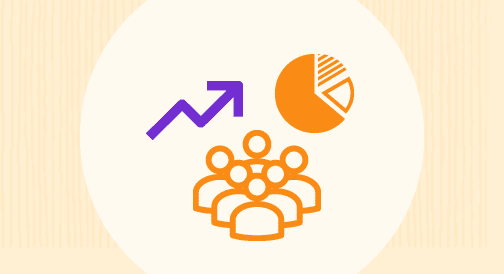Overview
Without data, you have no choice but to make marketing decisions based on feelings or gut feel—both of which can hurt your business big time!
That’s why you need a reliable and efficient way of tracking, organizing, and analyzing data—something that only the best marketing analytics tool can do for you.
In this guide, we’ll cover ten marketing analytics tools to refine your marketing initiatives, get better results, and ultimately achieve your business goals.
What are marketing analytics tools?
Marketing analytics tools are software or apps that help you generate, manage, and measure data that are relevant to your marketing campaigns.
It gives you a clearer, more accurate picture of the health of your marketing campaigns and overall operations.
10 popular marketing analytics tools
Here are the top ten analytics tools for digital marketing. Learn and choose the most suitable option for your business operations.
1. Coefficient
Coefficient is a no-code solution that lets you import, export, and sync Google Sheets to your existing company systems.
With one click, you can connect your spreadsheet to the system, app, ad/social platforms, or databases you have, such as Salesforce, HubSpot, Google Ads, Google Analytics, and more, and then pull whatever data you need instantly.
This eliminates the copying and pasting of data or the use of CSV files to manually get your datasets to your spreadsheet, speeding up the pulling of thousands of columns and rows of data.
If you don’t want to build a report or dashboard from scratch, you can grab one of our industry-leading marketing report templates that use live data straight from your company systems.
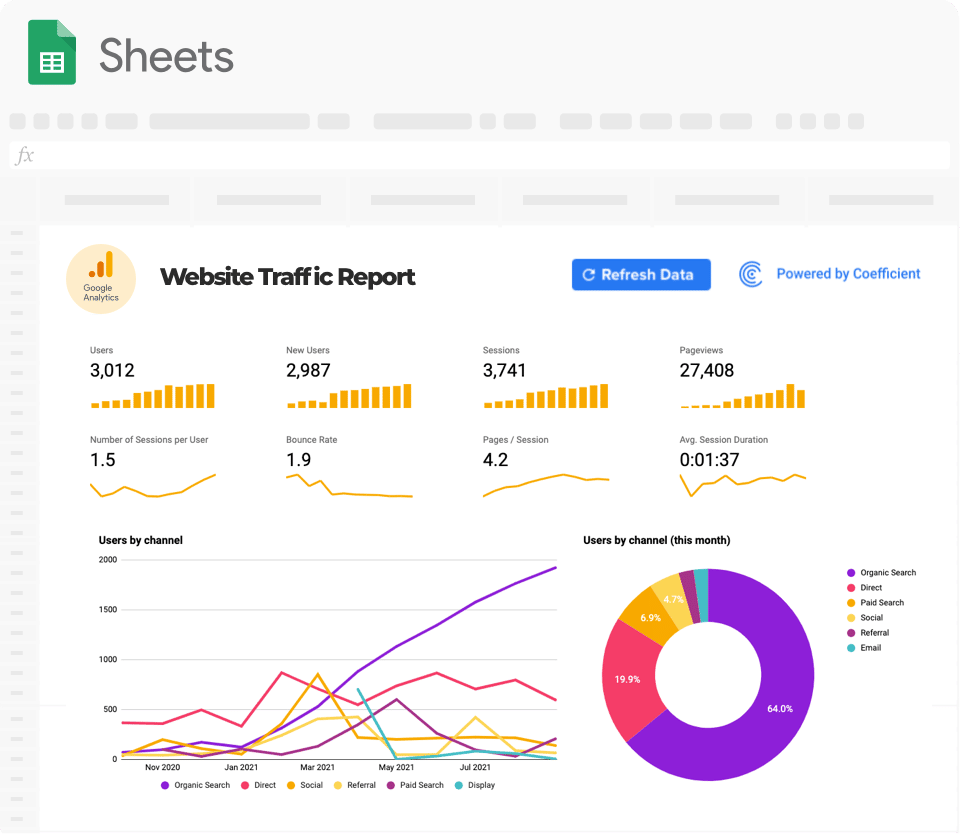
Coefficient lets you apply filters and limits on the fly to import only the data you need. You can also set auto-refresh schedules to keep your data updated and accurate.
The app streamlines your marketing analytics and reporting through pre-built dashboards that allow you to monitor and analyze your data seamlessly.
Target users of Coefficient
Data-driven marketers looking to leverage the power of their spreadsheet with existing systems can benefit from using Coefficient. This can include small-to-medium-sized SaaS companies, marketing teams, data analysts, and others.
The tool is a no-brainer to use, even for non-technical users and beginners.
Pros
- Easy to use
- Doesn’t require coding (unless you import data using a custom SOQL)
- Automates data syncing via auto-refresh schedules and alerts through email or Slack
- Powered by spreadsheets and collaboration
Cons
- Coefficient isn’t free but the pricing plans are worth more than its cost.
2. Mixpanel
Mixpanel is a marketing analytics platform to help product analysts engage, convert, and retain more users.
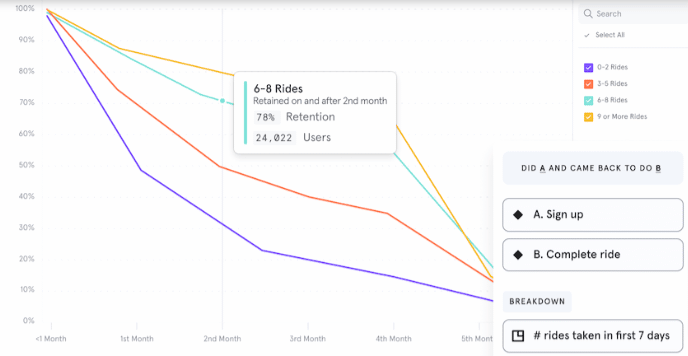
The tool can help you understand customer attribution, allowing you to see every action specific users perform on your website.
Target users of Mixpanel
Product analysts and marketing teams of various sizes can leverage Mixpanel’s marketing analytics software to analyze company data.
The platform can connect to any source easily. It allows you to build funnels, view top user flows, and create custom reports, making the tool accessible to anyone with the essential access and skills.
Besides loading data from your data warehouse, Mixpanel can stream events directly from your apps and servers through a customer data platform.
Pros
- Offers many reporting options and allows you to visualize data in various ways
- Has user-friendly features and an intuitive user interface (UI)
- Provides flexibility and custom attributes-building capabilities
- Lets you segment users by tying events together via user attributes
Cons
- Can run slow when processing massive data volumes
- The reports could offer better visualizations
3. AppsFlyer
AppsFlyer is a mobile attribution and marketing analytics platform that gives businesses a clear, data-driven view of their mobile campaign performance.
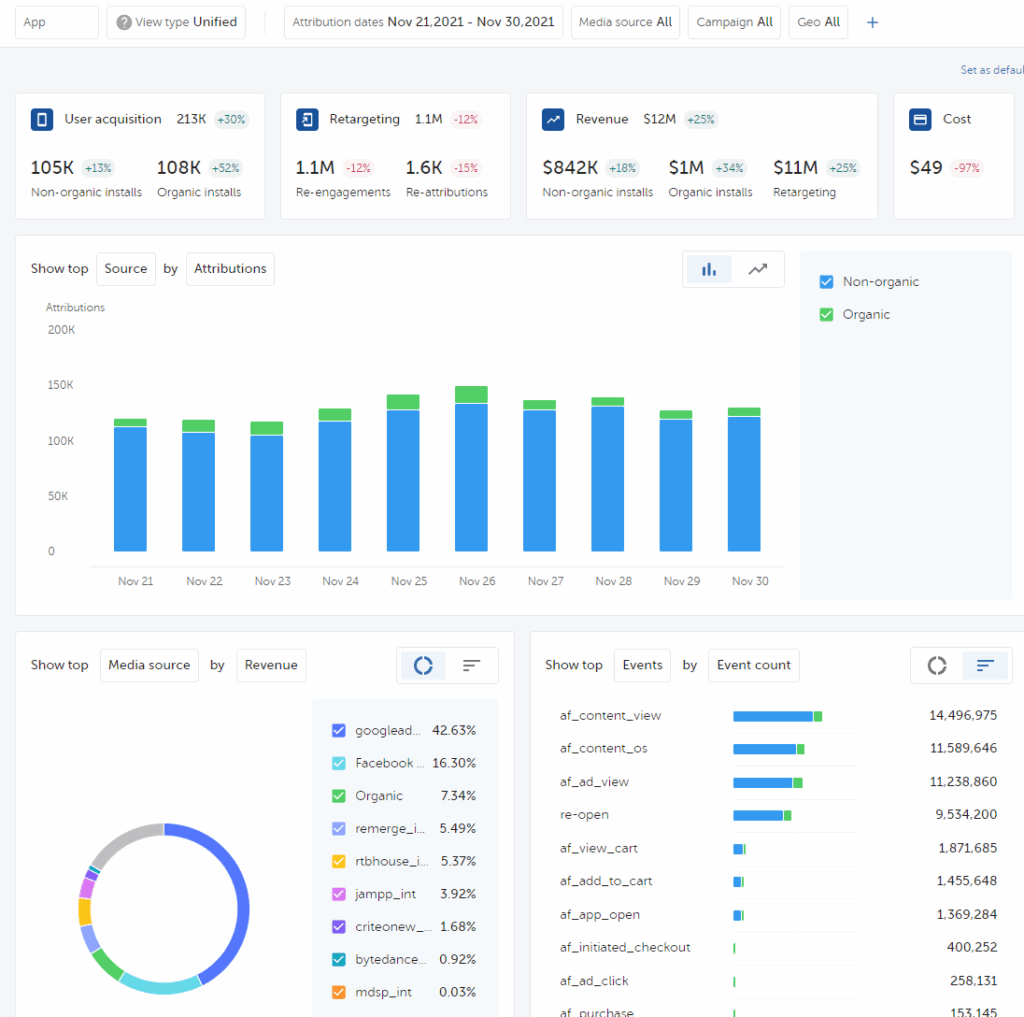
By tracking and analyzing user journeys across devices and channels, it delivers precise attribution data and actionable analytics that help marketers understand which channels drive results and how to optimize them for higher ROI.
The platform combines advanced fraud protection, audience segmentation, and deep linking features, enabling you to deliver more personalized user experiences while safeguarding your ad spend.
With integrations to thousands of media sources, analytics tools, and marketing platforms, AppsFlyer serves as a single, reliable source of truth for mobile marketing insights.
Target users of Appsflyer
Mobile-first businesses, app developers, and marketing teams that run paid acquisition campaigns across multiple networks will benefit most from AppsFlyer. It’s especially valuable for teams that need accurate cross-channel attribution and in-depth campaign analytics.
Pros
- Tracks user journeys across devices and platforms with high accuracy
- Offers robust mobile attribution and deep linking capabilities
- Ensures privacy and compliance with GDPR, CCPA, SKAdNetwork, and other regulations
- Integrates with thousands of ad networks and analytics platforms
- Provides a user-friendly dashboard with clear reporting and seamless onboarding
Cons
- Steeper learning curve for some advanced features if you’re a beginner
- Pricing can be high for smaller businesses with limited budgets
4. Oribi
Oribi is an analytics tool that offers a code-free way to understand your analytics data.
The software offers easy setup and AI-powered, automated event tracking, giving you complete control of your marketing and other analytics.
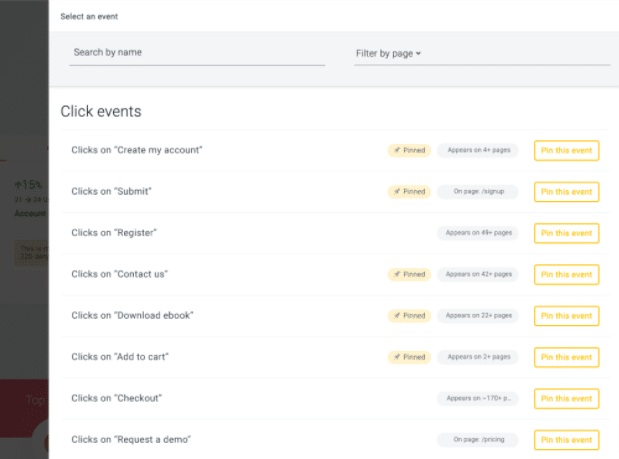
Oribi’s analytics make it easy to get insights into how your website visitors engage with your content and the actions they perform on your site, including their spending patterns.
Target users of Oribi
Businesses of various sizes and types can use Oribi to help make sense of website data.
Oribi’s user-friendly interface and easy-to-uncover insights make data accessible to anyone on your marketing team.
The marketing analytics tool helps you learn how your website content impacts your conversions, create cross-domain funnels, and see individual visitor journeys and full marketing attribution (among others).
You can install the tracking code on your website once, and Oribi does the rest.
Pros
- Shows you the entire visitor journey across sessions and domains
- Groups and tracks all visitor actions on your website automatically, including button clicks
- Allows you to define your conversion goals without coding
- Lets you create fully customizable reports you can configure to send automatically
Cons
- Does not offer a freemium version
- Has limited third-party integrations
5. Tableau
Tableau’s analytics platform helps you understand your marketing data via many intuitive BI tools.
The platform’s Tableau prep feature offers a direct and visual way to shape, combine, and clean your data. It also lets you automate your data prep flows, allowing you to run analyses and get insights faster.
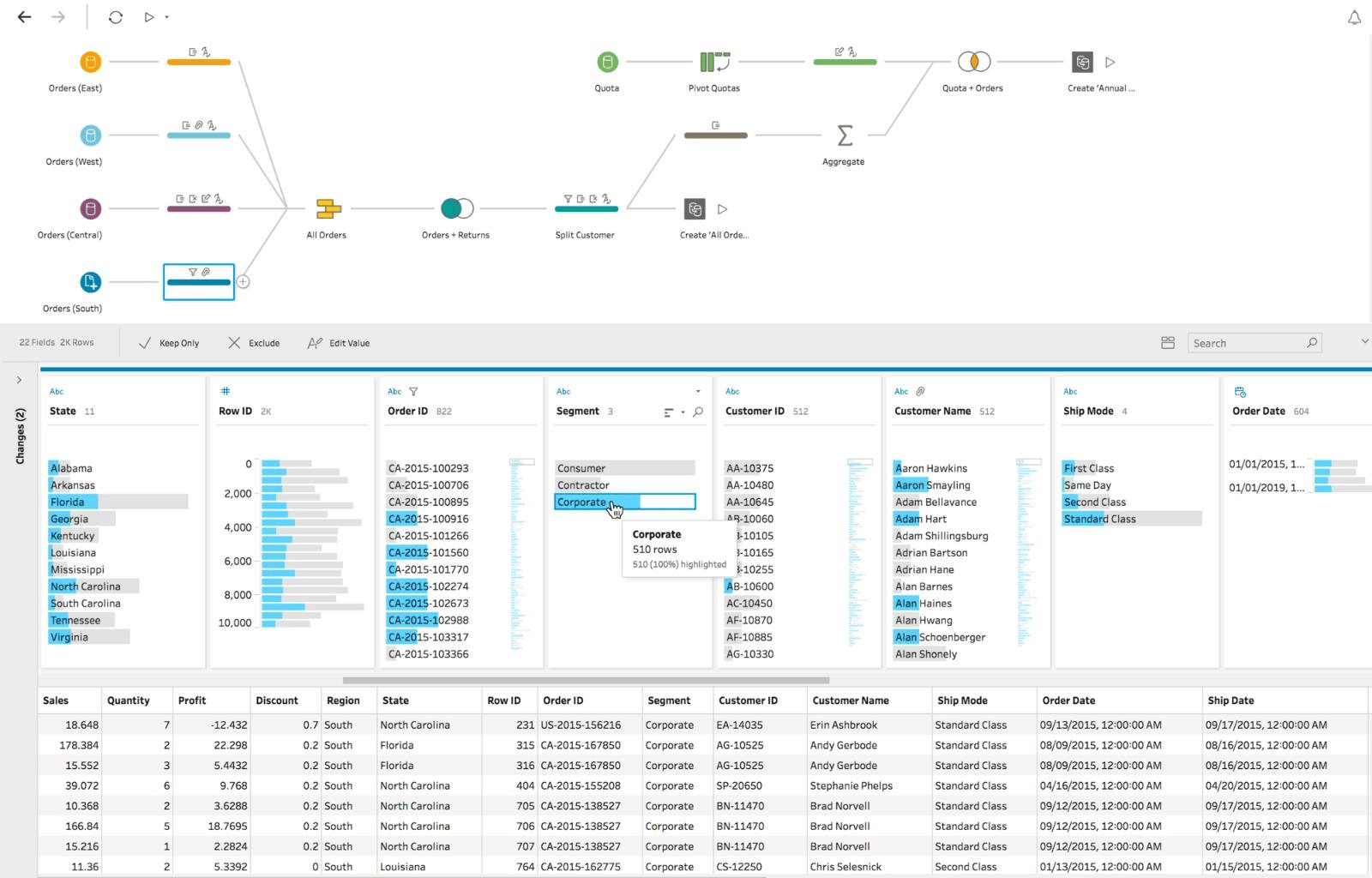
Target users of Tableau
While anyone with the right data analytics skills and experience can use Tableau, IT professionals, analysts, and executives can benefit most from using the platform.
You can integrate Tableau to your Salesforce account and leverage the platform’s Einstein AI (and other Salesforce apps) to optimize your marketing analytics processes.
Tableau allows flexibility for plug-and-play data analysis since you can deploy the software natively, on premise, in the cloud, or integrated with your existing CRM.
Pros
- Allows you to connect to hundreds of data sources without programming knowledge
- Offers easy-to-use, drag-and-drop integration
- Lets you analyze your marketing data from any device with a mobile-optimized design
- Includes a great range of data visualization options
Cons
- Lacks some of the more complex features that similar marketing analytics tools offer
- Not flexible and poor for ad-hoc analysis
6. Domo
Domo’s modern BI and marketing analytics tool allows you to connect the platform to any data source and pull your data together into a single source of truth, such as Mailchimp email data and GA data.
The platform’s automation-powered marketing suite provides the real-time reporting functionalities your team needs across all your channels.
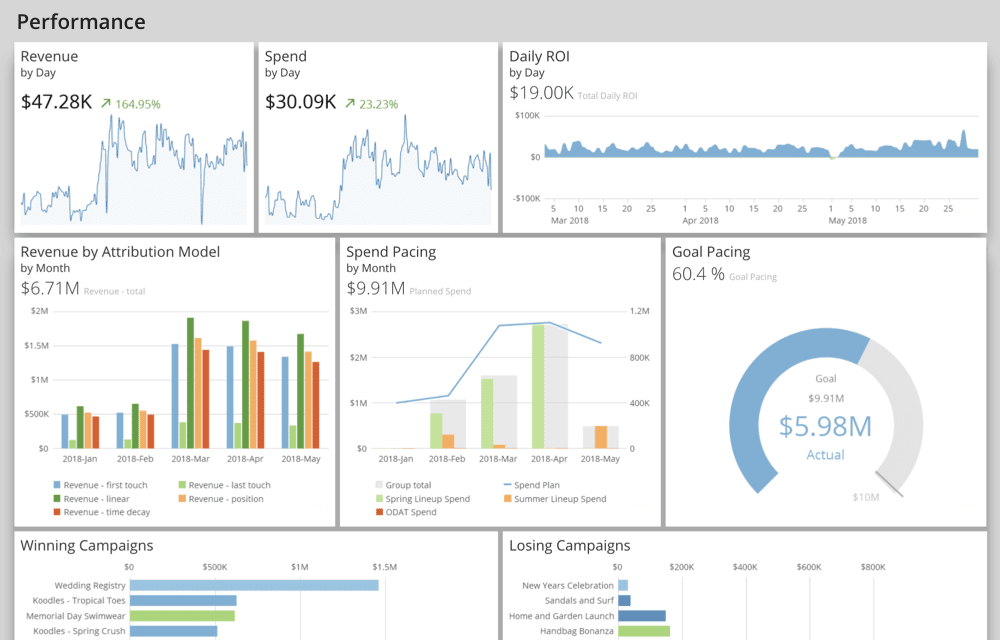
Target users of Domo
Domo is geared towards C-level executives who want a BI tool to gain executive-level insights into overall business performance.
The platform collects and organizes your data on the backend. It gives you a detailed overview of your data through a custom dashboard.
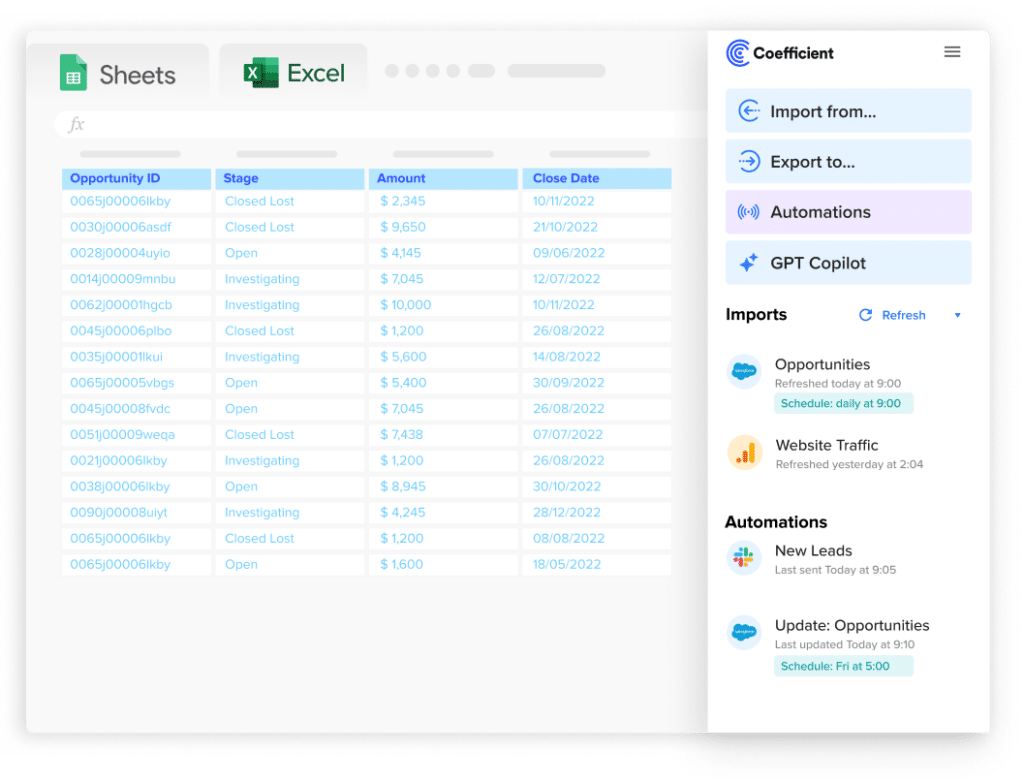
Stop exporting data manually. Sync data from your business systems into Google Sheets or Excel with Coefficient and set it on a refresh schedule.

Pros
- Offers over 1,000 connectors
- Easily shareable extended and embedded analytics
- Gives you real-time data through one dashboard
- Does not require in-depth coding skills or technical knowledge to use
Cons
- Not specifically for marketing, so it doesn’t offer granular details and features most marketing-focused analytics tools have
- Not flexible and poor for ad-hoc analysis
7. Funnel.io
Funnel.io is a marketing analytics software that gathers, maps, and cleans all your marketing datasets into one place to simplify the management of your data.
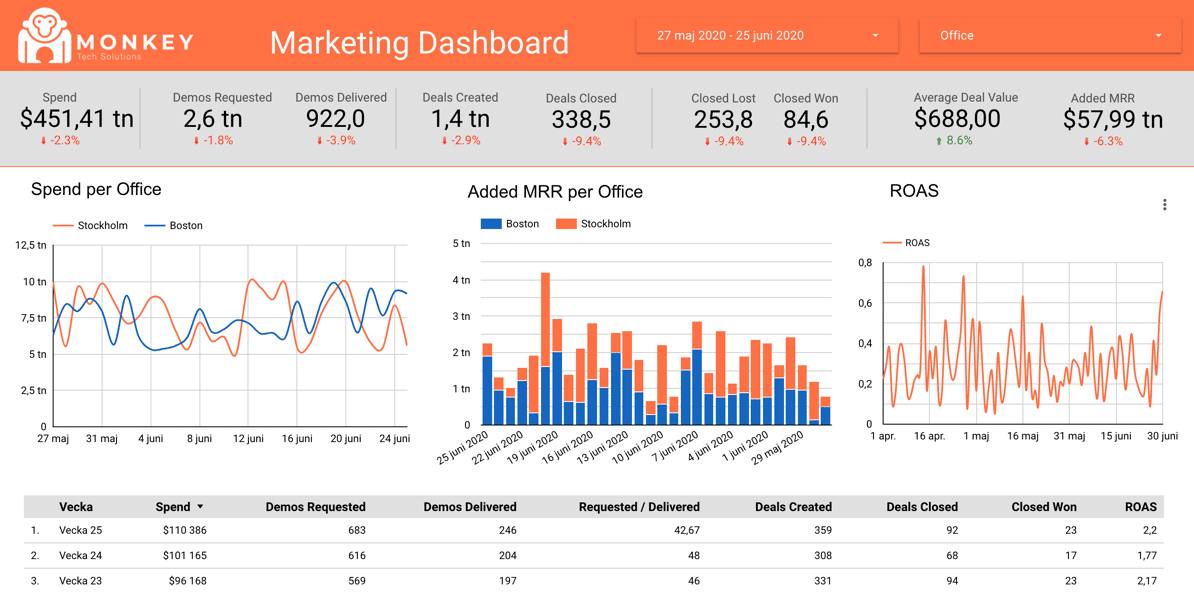
Target users of Funnel
Funnel is designed for data-driven companies that want to capture data from a huge number of data sources. This includes digital marketing and analytics teams, BI and data analysts, and IT and engineering experts.
The platform can connect with more than 500 advertising and marketing platforms. It also offers flexible solutions for collecting and sending data to your preferred destinations.
Pros
- Provides an overview of your marketing channels
- Allows you to automate marketing reports to streamline your decision-making process
- Includes a comprehensive library of resources to help you use the platform properly
Cons
- Setting up APIs can be confusing to non-technical users
- Not flexible and poor for ad-hoc analysis
8. Google Analytics
Google Analytics is a free tool that allows you to track all your website activities.
You can add a Google Analytics integration pixel to your site, allowing Google Analytics to monitor where your traffic comes from.
The tool offers a wide array of features, including an option that lets you set custom conversion goals. This helps you track the effectiveness of your marketing campaigns and determine the channels that lead to conversions.
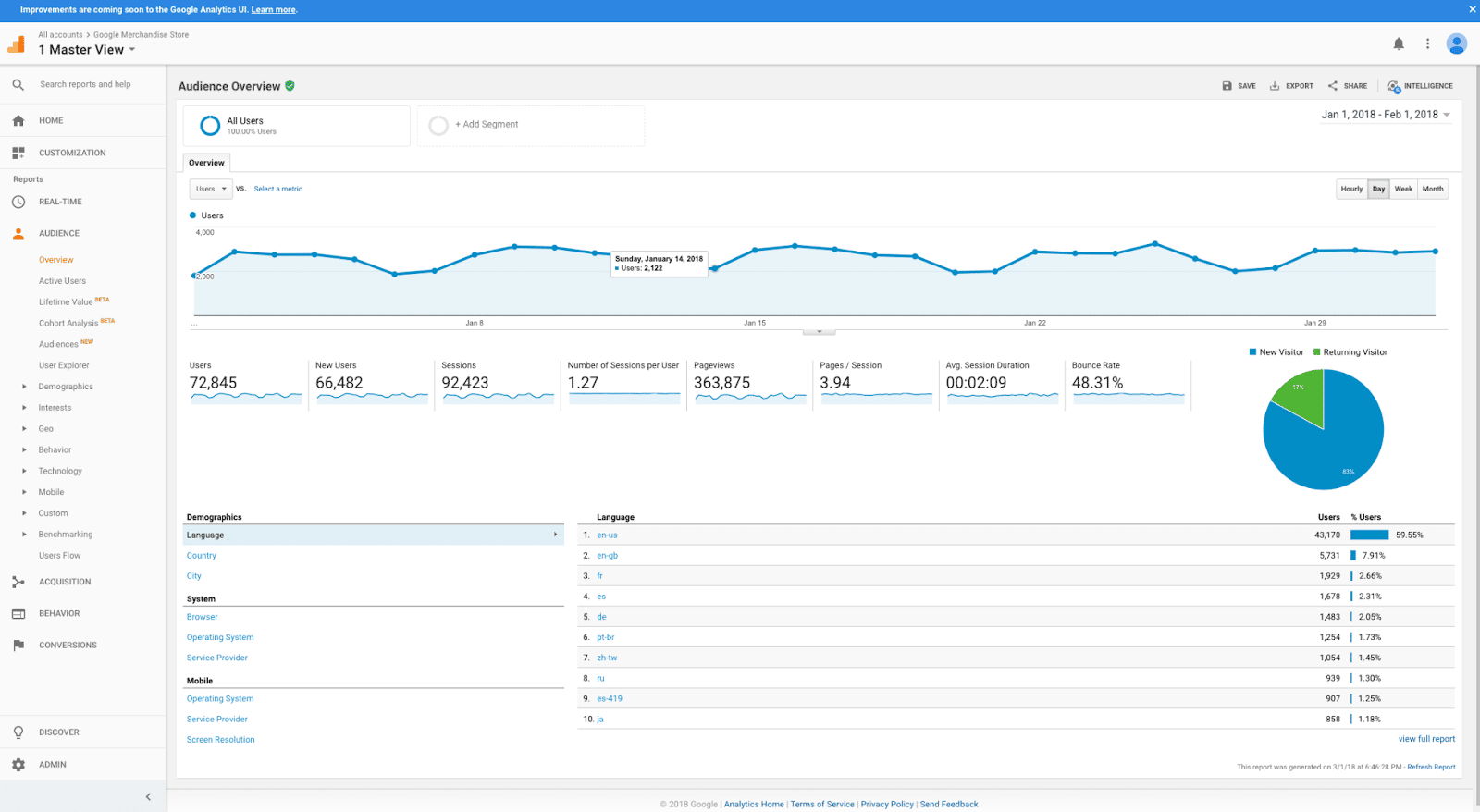
Target users of Google Analytics
Marketers and users who want to track website activities and conversions (among others) can benefit from Google Analytics’ features and functionalities.
While the platform may lack some connectivity and complex features other high-end marketing analytics tools offer, its ease of use and reliability make it an indispensable solution for analysis and reporting.
Pros
- Offers excellent data visualization features
- Gives you essential website traffic data for your marketing efforts
- Lets you create a custom dashboard
- Helps you understand your marketing campaign’s performance and traffic by channel
Cons
- Doesn’t let you determine where specific customers come from based on their email addresses (you’ll need to use more advanced software to do this)
9. Heap
Heap’s marketing analytics platform helps your sales, marketing, and customer success teams gather and analyze data across platforms within your ecosystem.
The tool’s features can help you understand customer attribution and see every user’s action on your website.
Target users of Heap
Heap is designed to help product and data teams to measure marketing data without coding skills and knowledge.
It offers features to help you improve each stage of your customer’s journey, boosting your return on investment and margins.
The user’s view in this platform lets you see granular user-level data that shows how people interact with your app.
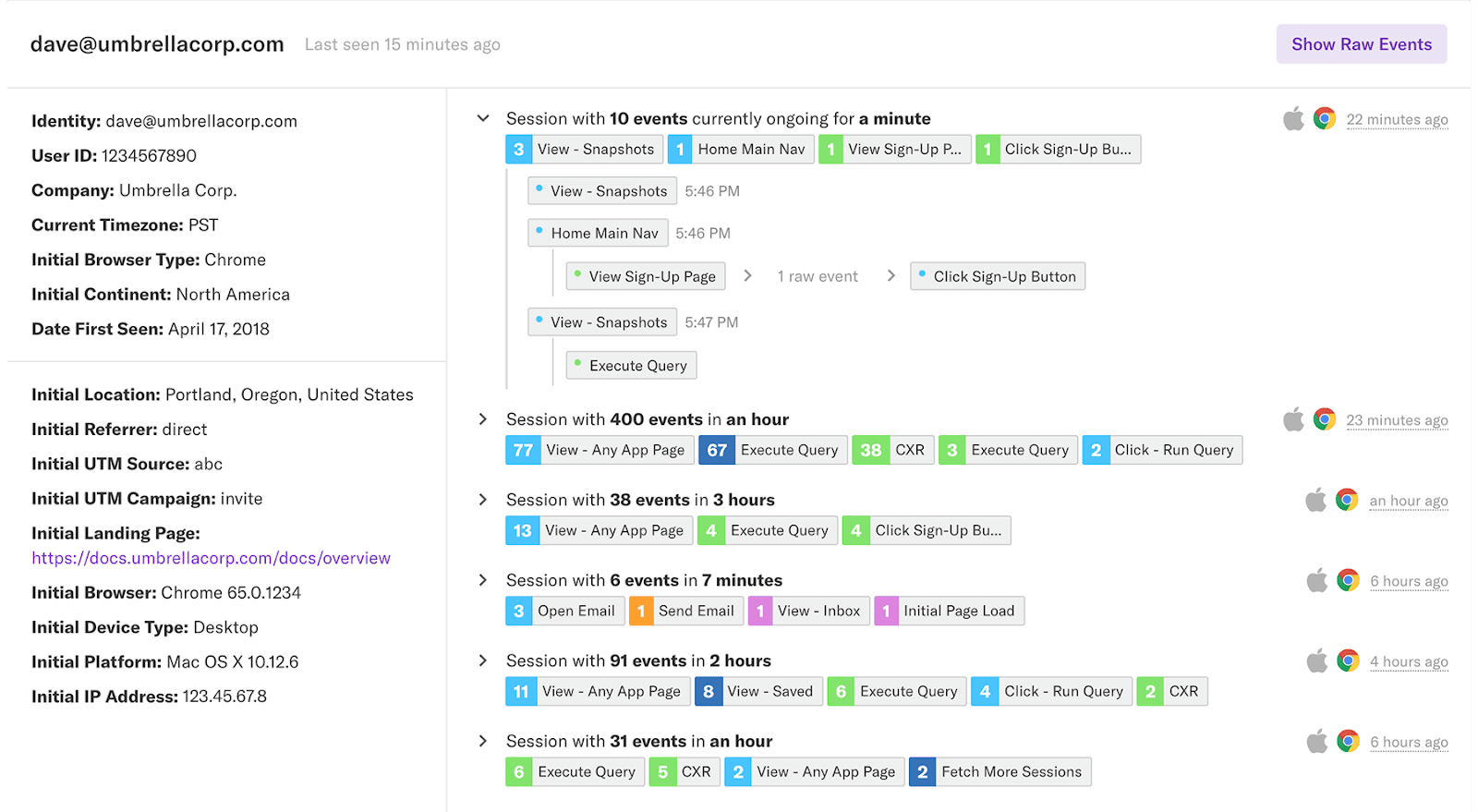
Pros
- Lets you run tests and experiments on your data
- Ready to use out of the box, simplifying analytics for teams with little experience using similar tools
- Offers Heap Connect, a feature that identifies data patterns and models’ behavioral data
- Captures data from many sources and provides process automation
- Measures your customer retention across lifecycles
Cons
- UI takes a bit of learning which can slow down onboarding and deployment
10. Fivetran
Fivetran is an analytics and data collection platform that lets analysts interrogate and query data at any time.
The tool lets you gather and centralize all your data, allowing you to focus on innovation and insights.
Target users of Fivetran
Fivetran is geared toward helping sales and marketing teams and data professionals that need a marketing analytics solution to handle technical-related tasks.
The platform offers more than 150 zero-configuration connectors, allowing you to deploy and connect to your data sources quickly (with minimal effort).
It also provides pre-built schemas, end-to-end security, a self-healing architecture, and integrated transformations.
Pros
- Stored data is easy to search
- Provides instant access to your analysis-ready data after you set the collection processes in place
- Includes strong security features through SSL encrypted connection and secure data storing
- Supports in-warehouse, SQL-based data transformations for seamless data scaling in mass
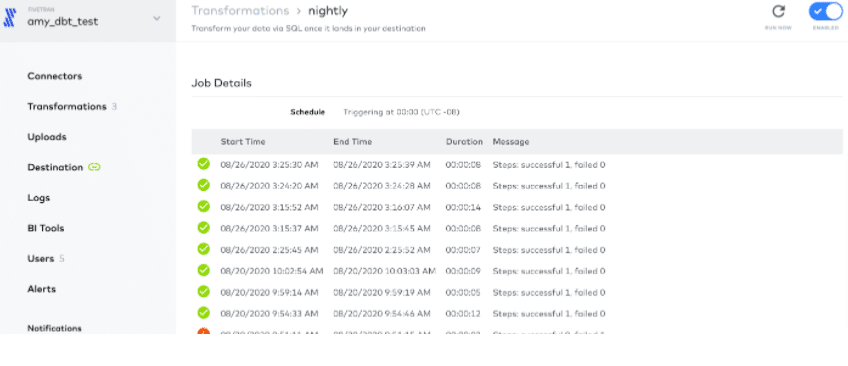
Cons
- Offers fewer integrations compared to other analytics platforms
- Expensive
Find the best fitting marketing analytics platform for your business
It takes careful research and a few trials and errors to find the best marketing analytics tool that will fit the dynamics of your business.
Begin with simple tools and work your way toward more advanced solutions as you learn more and as your business grows.
One of the best tools to start with is Coefficient—with its easy-to-use, almost code-free app.
It lets you pull up and sync data instantly, automate data updating, conduct marketing analyses seamlessly, and generate reports efficiently within Google Sheets.
Try Coefficient for free today.

